Background
Bliss Perry was born on November 25, 1860, in Williamstown, Massachusetts; the son of Arthur Latham Perry, a farmer, and Mary (Smedley) Perry.

880 Main St, Williamstown, MA 01267, USA
In 1881, Bliss received a Bachelor of Arts from Williams College, and a Master of Arts in 1883.

(Published in 1895, and long out of print, The Plated City...)
Published in 1895, and long out of print, The Plated City has been identified as one of the earliest literary novels that treats baseball as an integrated part of the story, which it does. But it is also an incredibly modern story, including dramatic renderings of issues of race, gender and sex in Connecticut during the late Victorian period.
https://www.amazon.com/Plated-City-Bliss-Perry/dp/0980190967/?tag=2022091-20
1895
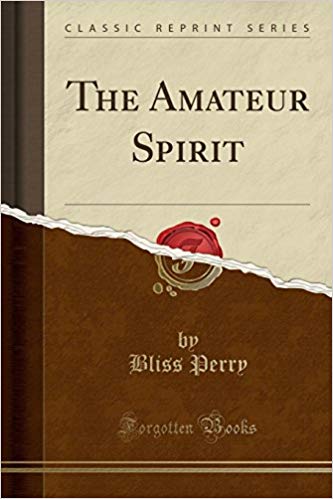
(The half dozen essays that are printed in this volume hav...)
The half dozen essays that are printed in this volume have sufficient unity, I hope, to justify their publication as a book. The emotions of the author who discovers that he has produced a treatise when he intended only a series of essays may be likened to the surprise of the child who observes that his blocks, piled almost at random, make something that looks like a castle after all.
https://www.amazon.com/Amateur-Spirit-Classic-Reprint/dp/1330229940/?tag=2022091-20
1904
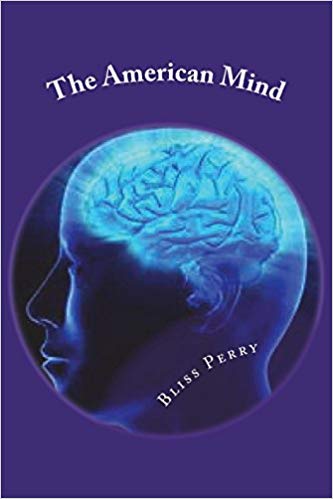
(The American Mind By Bliss Perry te literature without kn...)
The American Mind By Bliss Perry te literature without knowing it. Such considerations belong, I am aware, to the accepted commonplaces, -perhaps to what William James used to call "the unprofitable delineation of the obvious." Everybody recognizes that literary gifts imply an exceptionally rich development of general human capacities, together with a professional aptitude and training of which but few men are capable. There is but one lumberman in camp who can play the fiddle, though the whole camp can dance.
https://www.amazon.com/American-Mind-Bliss-Perry/dp/1722213515/?tag=2022091-20
1912
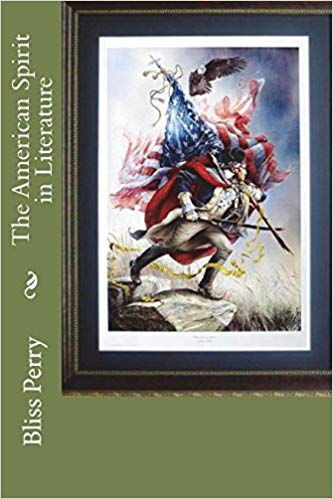
(The American Spirit in Literature A Chronicle of Great In...)
The American Spirit in Literature A Chronicle of Great Interpreters By Bliss Perry man institutions in this daily altering world. "We are but strangers in an inn, but passengers in a ship," said Roger Williams. This sense of the transiency of human effort, the perishable nature of human institutions, was quick in the consciousness of the gentleman adventurers and sober Puritan citizens who emigrated from England to the New World. It had been a familiar note in the poetry of that Elizabethan period which had followed with such breathless interest the exploration of America.
https://www.amazon.com/American-Spirit-Literature-Bliss-Perry/dp/1722213507/?tag=2022091-20
1918
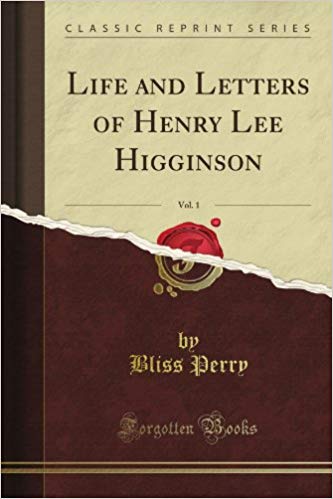
(The material for a life of Henry Lee Higginson is abundan...)
The material for a life of Henry Lee Higginson is abundant. He had a fondness for keeping letters and memoranda, and the correspondence to which I have had access is enormous in quantity, and covers a period of more than seventy years. During both of his long sojourns in Europe, in his youth, he kept diaries, as he did for a while during the Civil War; and later in life he dictated some vivid Reminiscences.
https://www.amazon.com/Letters-Henry-Higginson-Classic-Reprint/dp/B008TZDRG2/?tag=2022091-20
1921
Bliss Perry was born on November 25, 1860, in Williamstown, Massachusetts; the son of Arthur Latham Perry, a farmer, and Mary (Smedley) Perry.
Young Perry grew up amid what Simon called “an essentially Arcadian life in which honesty, fairmindedness, and decency were the rules of behavior.” He was both a rural lad, doing farm chores and enjoying the Berkshires, and a studious boy who took advantage of the large stock of books in his house. As a consequence, he had an affinity for writers such as Nathaniel Hawthorne and Ralph Waldo Emerson, who represented the old New England.
Bliss attended Williams College, and there received an education in the classics; he also studied rhetoric and became known as a debater and speech-maker. He graduated in 1881 with the prize for elocution and extemporaneous speaking, so that when a professorship in rhetoric and public speaking became available at the end of the year, he was a natural choice to fill the role. He excelled as a teacher, and in his spare time took up the study of French and German along with Old English. At this point, he was determined to become a philologist.
Perry was made a full professor in 1886 and given a two-year sabbatical to study philology in Germany - at that time the center for such study. He studied at the University of Berlin and the University of Strasbourg but declined to write the dissertation and stand for the oral examination that would enable him to claim a Ph.D. During the course of his immersion in linguistic and textual criticism, Perry had decided not to follow classical philology, but rather to pursue aesthetics.
In 1888, in the United States, Bliss resumed his teaching duties, though he expanded his course offerings to include Anglo-Saxon prose - which he persuaded the college to make a requirement - and Chaucer, reflecting the course of his studies in Germany. He had published a few stories before leaving for Germany, but after his return, they began to find print in magazines such as Scribners and the Atlantic Monthly with increasing frequency. Encouraged, Perry wrote what would be his first novel, The Broughton House, which was published in 1890 by Scribners. The book was a frank - for its time - portrayal of marital conflict, though it resolved on a sentimental note with the wife taking her own life. The book was popular, and further enhanced Perry’s growing reputation. He caught the eye of Princeton University and was lured there in 1893 to be the chair of oratory and aesthetic criticism.
Perry published a volume of stories, Salem Kittredge and Other Stories, in 1894, and in 1895 he came out with a second novel, The Plated City. Meanwhile, Perry was teaching a variety of courses at Princeton, ranging from an English literature survey course for freshmen to graduate seminars on Robert Browning, and enjoying Princeton’s more cosmopolitan atmosphere. In 1897, he had begun to edit Little Masterpieces, an eighteen-volume set intended for schoolrooms. While the project did not make money, Perry was nonetheless proud of it, feeling that he was helping to elevate ’literary taste in the United States by placing some of the best work of the greatest writers within reach of everybody’. In the meantime, he was appointed the Holmes Professor of English and Belles Lettres at Princeton. In 1899, Perry published another collection of short stories, titled The Powers at Play. Most of the stories were reprinted from the magazines in which they had originally been published, and they had an overriding theme of the clash between the rural New England Yankee tradition and the increasingly industrial and ethnic city culture. This would be the end of Perry’s solid fiction career - the rest of his professional life was centered on teaching, editing, and writing critical essays.
In 1899, Perry assumed the helm at the Atlantic Monthly; he was a good choice, able to combine a deep understanding of the New England literary tradition, which had made the magazine’s reputation, with an understanding and appreciation for the new culture that was beginning to supplant it. As editor of the Atlantic Monthly, Perry moderated the two impulses that had governed the magazine’s past: the urge toward a broad political outlook and a more elite journal of ideas and literature. He left his teaching post at Princeton in 1900 and moved to Boston, the magazine’s base. There, he became part of the Boston elite, gaining membership in the Saturday Club, whose distinguished membership included Emerson, Henry Wadsworth Longfellow, Oliver Wendell Holmes, Hawthorne, and John Greenleaf Whittier. During the time he was editor, he also became the senior literary advisor at Houghton Mifflin, and, in addition to overseeing other Houghton Mifflin efforts such as the Riverside Literature series, he issued a fourteen-volume set of Henry David Thoreau’s journals and a ten-volume set of Emerson’s journals. He continued to support the established New England poets, such as by publishing a brief literary biography of Whittier in 1907.
In 1902, Bliss had begun publishing literary criticism as well. A Study of Prose Fiction became extremely popular for two decades; in this work, he argued for the preeminence of James Fenimore Cooper, Hawthorne, and Poe. In 1906, he published Walt Whitman: His Life and Work, offending people on both sides of the Whitman question with his measured approach, but ultimately contributing greatly to the hook’s centrality within the American canon. In 1904 Perry had taught one course at Harvard substituting for another professor who was on leave. Harvard’s president was anxious to make Perry part of the faculty, and although he first declined because of his commitment to the magazine, Perry finally agreed given the stipulation that he would only teach part-time until his tenure at the Atlantic Monthly had ended.
In 1906, Bliss accepted the position at Harvard and continued teaching there until he retired in 1930, publishing a variety of critical works along the way, including Thomas Carlyle: How to Know Him in 1915. Perry had conceived of a magnum opus, which was to be a comprehensive history of American literature. As he continued on with the task, however, he uncharacteristically abandoned it, losing faith in his conclusions and in his ability to speak to the new Zeitgeist. Like many others, it was difficult for Perry to keep up with the times. He ignored more experimental writers like Stephen Crane and Theodore Dreiser. The project was never completed. Still, he continued on as a popular teacher, and published a memorable volume of his lectures on Emerson, called Emerson Today, in 1931. Bliss retired to Exeter, New Hampshire, where he lived quietly until his death on February 13, 1954, at the age of 93.
Bliss Perry is known as a prolific writer of novels, short fiction, essays, studies in poetry, and an autobiography. He is famed in certain Vermont lore for "establishing" the "summer colony" of Greensboro, Vermont. Perry was awarded the Legion of Honor by the French. He was also instrumental in defending Emerson’s reputation for a new generation of readers.
(Published in 1895, and long out of print, The Plated City...)
1895(The American Spirit in Literature A Chronicle of Great In...)
1918(The half dozen essays that are printed in this volume hav...)
1904(The American Mind By Bliss Perry te literature without kn...)
1912(The material for a life of Henry Lee Higginson is abundan...)
1921Bliss was a member of the American Academy Arts and Letters and Massachusetts History Society.
Bliss Perry epitomized ethical ideals, refined manners, and traditional literary forms. While other authors were busy eschewing its strong moralism, Perry was able to make the New England tradition palatable for a new century, tempering its rigor with his acute eye for aesthetic experimentation.
Fly fishing was one of his key hobbies, which led to the publication of "Fishing With a Worm."
Quotes from others about the person
"Perry’s blend of open-mindedness and reticence, of honesty and decorum and his modesty, vigor and reasonableness placed him squarely within the often-decried Genteel Tradition of polite critics." - Myron Simon
“Perry faithfully discharged what he understood to be the critic’s role as custodian of the moral standards to which society in its own interests holds the artist accountable. However, he also demonstrated the critical capacity to perceive in the artist’s personal vision his justification for experiment and innovation.” - Myron Simon
In 1888, Perry married Annie L. Bliss. They had three children: Constance Goodnough, Margaret Smedley and Arthur Bliss.
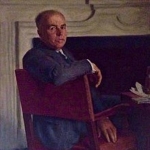
January 3, 1877 – January 27, 1970
Lewis Perry was an American educator and the eighth principal of Phillips Exeter Academy.
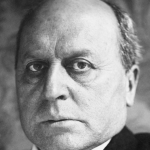
15 April 1843 – 28 February 1916
Henry James was an American-British author regarded as a key transitional figure between literary realism and literary modernism, and is considered by many to be among the greatest novelists in the English language.
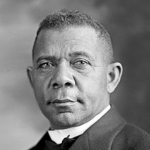
c. 1856 – November 14, 1915
Booker Taliaferro Washington was an American educator, author, orator, and advisor to presidents of the United States.
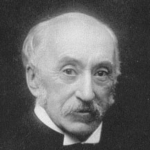
November 16, 1827 – October 21, 1908
Charles Eliot Norton was an American author, social critic, and professor of art.
January 24, 1862 – August 11, 1937
Edith Wharton (born Edith Newbold Jones) was an American novelist, short story writer, playwright, and designer.
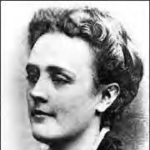
September 3, 1849 – June 24, 1909
Sarah Orne Jewett was an American novelist, short story writer and poet, best known for her local color works set along or near the southern seacoast of Maine.
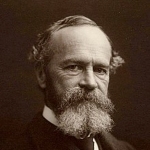
January 11, 1842 – August 27, 1910
William James was an American philosopher and psychologist, and the first educator to offer a psychology course in the United States.
December 28, 1856 – February 3, 1924
Thomas Woodrow Wilson was an American statesman, lawyer, and academic who served as the 28th president of the United States from 1913 to 1921.
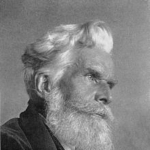
2 February 1859 – 8 July 1939
Henry Havelock Ellis, known as Havelock Ellis, was an English physician, writer, progressive intellectual and social reformer who studied human sexuality.
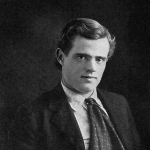
January 12, 1876 – November 22, 1916
John Griffith London (born John Griffith Chaney) was an American novelist, journalist, and social activist.
